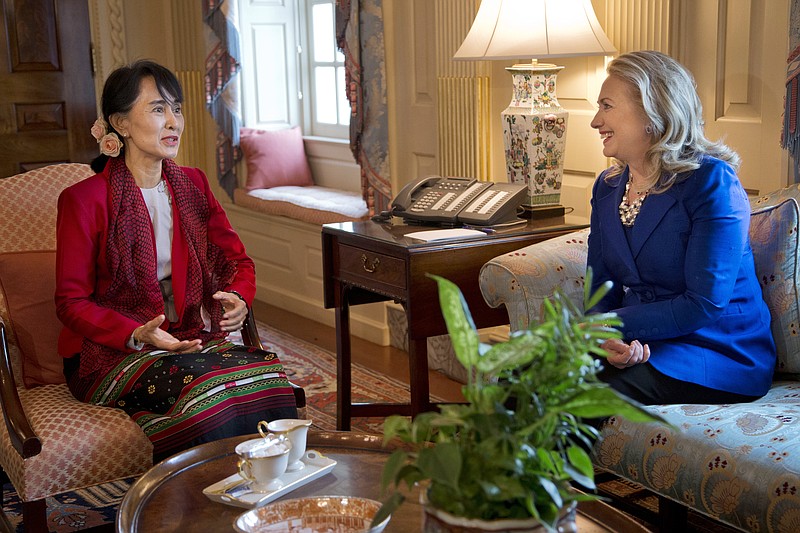WASHINGTON (AP) - Myanmar democracy leader Aung San Suu Kyi began her landmark visit to Washington by declaring Tuesday that she supports the easing of the remaining U.S. economic sanctions on her country.
Suu Kyi was speaking after meeting with Secretary of State Hillary Rodham Clinton at the State Department at the start of a 17-day trip to America. Her visit came as the Obama administration considers lifting a ban on imports from the country also known as Burma.
"I do support the easing of sanctions because I think that our people must start to take responsibility for their own destiny," Suu Kyi said at the United States Institute of Peace think tank. "We should not depend on U.S. sanctions to keep up the momentum for democracy. We have got to work at it ourselves."
The U.S. visit by the Nobel laureate, who spent 15 years under house arrest before her release in late 2010, is itself a powerful sign of how a former pariah state has shifted from five decades of repressive military rule, gaining international acceptance. The Obama administration has been at the forefront of the re-engagement, and in July allowed U.S. companies to start investing there again.
Clinton did not directly address the sanctions issue in her comments but such a categorical statement of support from Suu Kyi for easing them increases the likelihood the administration will do so - possibly during next week's visit by Myanmar President Thein Sein to attend the U.N. General Assembly's annual gathering of world leaders in New York.
Clinton said the U.S. is committed to standing with Burma in its progress toward democratic reform. However, she voiced concern over the continued detention of political prisoners and ethnic violence.

